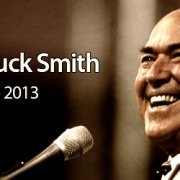Rant warning…..rant warning……rant warning…..rant warning…..rant warning…..
The next time I see a pastor raise his eyebrows or roll his eyes or cock his head and then with a smirk say something like, “that’s a PARA-CHURCH-ORGANIZATION”, with disdain in his voice, I’m not sure I’ll be able to restrain myself from going “Mordecai” on him.
So in order to restrain myself, I want to “Go Mordecai” in this post and get it out of my system.
First, my guess is that compared to most pastors, I spend a large portion of my time swimming in the sea that is dominated by Para-church Organizations, (PCO’s). By and large, the vast majority of what’s taking place in the missions world is being accomplished by PCO’s. And not just the missions world, but also the campus ministry world, the prison ministry world, the bible translation world, and so forth.
When I went into pastoring full-time more than 27 years ago, I didn’t really know what a PCO was. But it wasn’t long before I began hearing what other pastors thought about PCO’s. And honestly, very little, if any of those opinions were positive.
When I asked some of the pastor-friends why they seemed to be so critical of these obviously God-used entities, I was told things like this:
1. PCO’s aren’t really biblical.
2. PCO’s exist to exploit local churches for their people, their money, and their connections.
3. PCO’s divert church member’s attention, loyalty, time, and gifts away from the ministries of local churches.
4. PCO’s are too agressive about marketing their vision and raising the funds that enable them to accomplish their vision.
5. PCO’s say they encourage their workers to be a healthy part of a local church, but then operate in ways that actually undermine the very ingredients necessary to be a healthy part of a local church.
And you know what?
Over the years, I’ve learned that many of those criticisms, in many cases, are actually somewhat accurate.
But the reality is this: PCO’s exist and are doing amazing things. And God is not just tolerating their existence or begrudgingly permitting them to do what they do.
He’s blessing them and the work they do in amazing ways–almost as if He Himself had something to do with their actual creation.
He did.
I believe He did so for many reasons, but at least one of those reasons comes from what He revealed about Himself in the book of Esther.
If you’re one of those pastors or church leaders or whoever, that believes God’s plans and purposes in this world would be better served by PCO’s making an exit from this world, I will now “Go Mordecai” on you by sharing some of my observations from the book of Esther:
God had sovereignly placed her in a strategic position in the midst of an unGodly environment…..kind of like the church.
And yet in the midst of the unGodliness, the Lord blessed her with incredible privilege and a degree of power and access to resources that few others in the kingdom possessed….kind of like the church.
But God had a specific purpose for her being there. His plan and purpose was not just to bless her and make sure her needs were met. She was there for a purpose larger than her own interests.
Eventually, God used a pressing, life or death type situation in the lives of others, and her uncle Mordecai’s wise perspective on the whole situation, to unveil His invitation to her to now become part of that larger purpose that He had always had for her.
Here’s what Mordecai, outside the palace, told Esther, inside the privilege of the palace, by way of Hathach, a Eunuch that the King has assigned to her as her servant:
Esther 4:13,14 And Mordecai told them to answer Esther: “Do no think in your heart that you will escape in the king’s palace any more than all the other Jews. For if you remain completely silent at this time, relief and deliverance will arise for the Jews from another place, but you and your father’s house will perish. Yet who knows whether you have come to the kingdom for such a time as this?”
Here’s what bugging me:
1. The church, comprised of those who are His people, who have been “saved”, especially in America, is an incredibly privileged position and possesses an incredible amount of resources. Those resources are amazingly diverse, (money, business expertise, vocational expertise, educational expertise, life-experience expertise, family-raising expertise, medical/dental expertise, and so forth).
2. We have His Word and we know that His desire is for all men to be saved, (1 Tim 2:4).
3. We know that Jesus commissioned His church to GO and to make disciples from among all of the ethnic groups that He has created and scattered around the world (Matt 28:18-20, Act 17:26).
4. And we know that He will accomplish His “end game” and that He WILL receive worship from every ethnic group that He has created, (Rev. 5:9, 7:9,10).
I don’t believe that I’m stretching it when I say that Esther and local churches today have some sobering things in common:
–Both are in a privileged position, even in the midst of ungodliness–in a sense, living the “palace life” while the majority of the rest of the occupants of the world, including other people of God, are struggling to find food and clean water on a day to day basis.
–Both have daily access to incredible resources that few others could ever dream of.
–Both have all of this BY GOD’S DESIGN.
–Both have been given an opportunity by God to be an integral part of the “relief and deliverance” that He is going to accomplish for His people, (those that know Him already AND those that are His even though they haven’t heard the gospel yet, whose deaths are imminent). See Acts 18:10
–Both need to know that they have been placed in the privileged position they occupy for “such a time as this”.
–Both need to know that He will accomplish that “relief and deliverance” through other people that do recognize and seize the opportunity He has placed before them to be part of this amazing work that He is going to do.
–And both need to recognize that there are serious consequences for NOT participating–their own imminent deaths.
I believe that God meant what He said when He told Esther that He’d bring relief and deliverance for His people from some other place.
We don’t know what that other “place” that God would have used actually was because Esther, after seeking prayer and knowing the risk to her own life, actually seized the opportunity.
But we do know what God used–that “relief and deliverance from another place”, when the leadership of many of His local churches balked at getting on board with His plans and purposes.
He created PCO’s.
It reminds me of Acts 8:1,4
Those that knew Him the best and were the most equipped and that heard from His own lips the commission to take the gospel to the whole world, couldn’t be budged, even by persecution, from the comfy confines of the area around Jerusalem.
So what did God do? He used others, probably brand new believers to take and preach the gospel across geographic and cultural boundaries.
With all of the above as the back drop, here’s what I’ve observed:
Leaders of churches tend to be overly critical of the very things that God has brought into existence because those leaders haven’t taken seriously the things that God says His people should be interested in and participating in.
I spend a large majority of my time trying to help pastors and church leaders see the importance and the value of being an integral part of God’s heart for the world that He has so clearly revealed in His Word.
And the vast majority of them not only ignore me and the other churches and PCO’s that are participating substantially, they actually go a step further and question the need of PCO’s to even exist.
The dots don’t seem to connect for many of those who have this attitude.
The reality is that PCO’s obtain a portion of their reason for existence because of the unwillingness of local church leaders to seize the opportunity that they and their churches were created for.
Like Esther, they are in the position they’re in “for such a time as this”. But they don’t recognize it.
Instead of bagging on PCO’s, maybe they should follow Esther’s lead and pray diligently and then take a risk that might cost them their very lives as they mobilize their resources for those that God is going to deliver with or without them around the world.
Ahhhh, I feel so much better. I’m now one more step away from having to “Go Mordecai” on a fellow pastor or church leader. :–)










